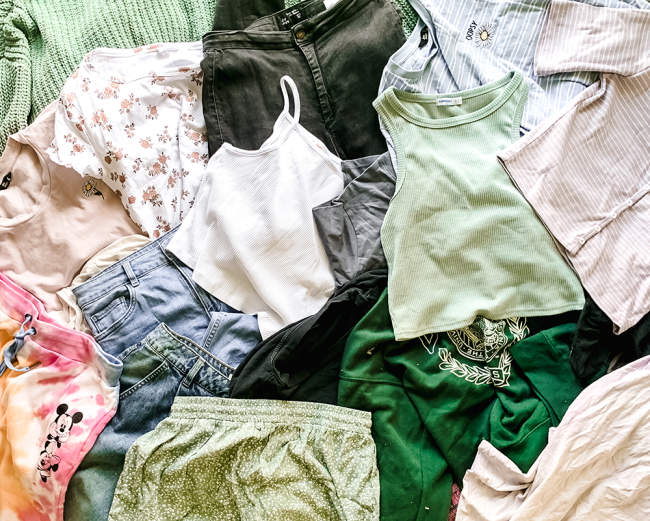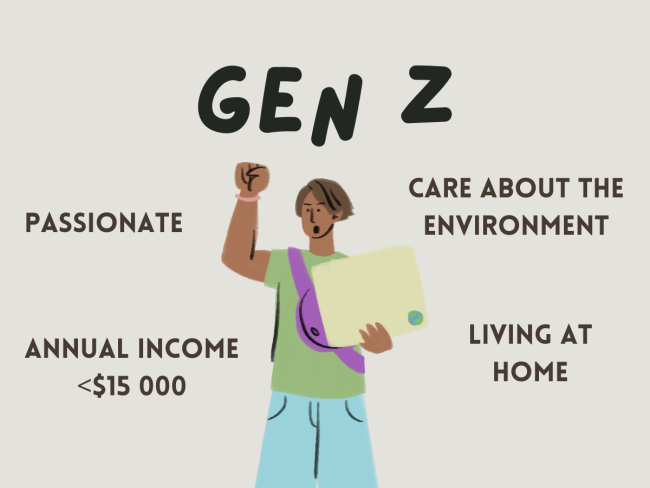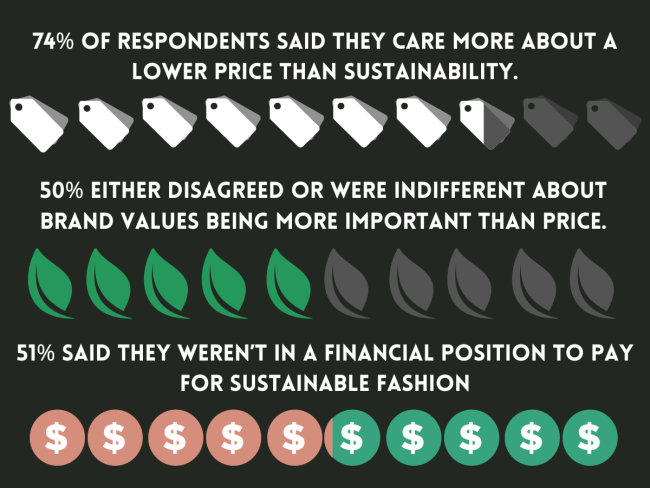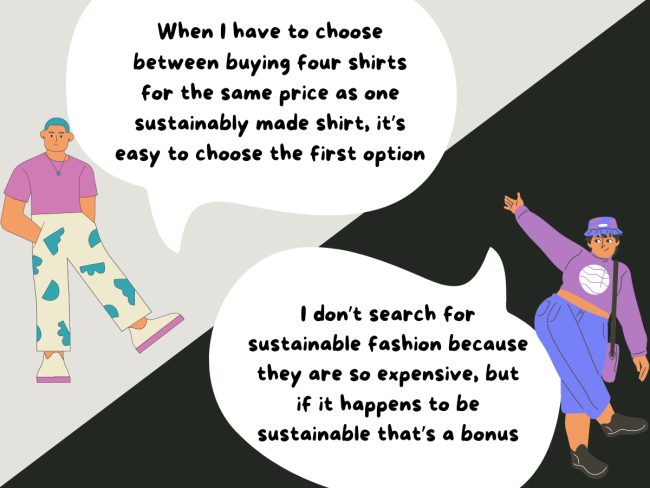
Newish findings on Gen Z and Fast Fashion
Fashion sustainability, and sustainability in general, is particularly important to Gen Z, a generation that is becoming known for taking collective action and demanding brands do better. But are these attitudes and values truly reflected in Gen Z’s purchasing habits?
Newish Communications, a student-run communications agency based out of the University of Queensland (of which I’m a member) recently completed a research project to look at the attitudes of Gen Z students towards fast fashion. The full report isn’t released yet (it’s coming soon!), but the early findings provide some interesting insights into Gen Z’s key considerations when shopping for clothes and the demands they make of brands.

What is fast fashion?
In the grand scheme of human history, fast fashion is relatively new. Fast fashion refers to cheap, low-quality clothing mass-produced at high rates to keep up with trends and sold at a low cost. Fast fashion is a problem fostered by the internet age and globalisation, spawned from consumer demands for the newest styles as quickly as possible. Many big, popular brands are known to be fast fashion brands, including H&M, Zara, and Uniqlo. Now, there are even ultra-fast fashion brands, like SHEIN and Boohoo, who take cheap mass production to a whole other level.
Why is fast fashion a problem?
Overall low quality aside, fast fashion is a problem for several, including:
- The use of production processes that dump multiple pollutants into the environment,
- the exploitation of workers who are paid less than a living wage and forced to work in poor conditions.
- The overproduction of products resulting in 501m tonnes of clothing ending up in Australian landfill annually (and another 94m kg exported overseas).
Who is Gen Z?
Gen Z is a large generation that makes up 20% of Australia’s population, and 30% of the global population. For Newish’s research, they were classified as individuals born between 1997 and 2012. Gen Z is the first generation to grow up entirely with the internet and globalisation, exposed to trends and information from all over the world. In Newish’s survey, most Gen Z respondents still lived at home and had an annual income of less than $15000.

Gen Z are very concerned about their environmental impact and the future.
This generation has not known a life without fast fashion. Living most of their childhood in the 2000s, they grew up as fast fashion brands found their boom. Despite fast fashion being all they’ve known, Gen Z say they want to see change.
Gen Z respondents to Newish’s survey showed a high level of concern about the environment, climate change, and the impact of their consumption habits. 78.7% are concerned about wasting the resource of the planet. 74.8% said it’s important they use products that don’t harm the environment.
This active, passionate generation isn’t afraid to hold brands responsible either. Nine out of ten Gen Z consumers think that companies have a responsibility to address environmental and social issues. Two-thirds are willing to boycott, avoid, or change brands if they don’t think a company is doing good enough when it comes to addressing controversial issues like climate change and fast fashion.
Gen Z’s thoughts on fast fashion seem to contradict their actual purchasing behaviour.
Despite their stance on sustainability, many Gen Z individuals continue to buy from fast fashion brands. Why? There are several reasons, and it goes beyond superficial reasons like trying to keep up with trends.
When making purchase decisions, Newish’s Gen Z survey respondents considered item quality first and foremost, followed by price and brand, then the perceived and environmental impact. Fashion trends were the last thing they considered.
Price is one of the biggest barriers to purchasing sustainable fashion for Gen Z.

Many Gen Z are currently students living at home and don’t have that large of a disposable income. When you’ve grown up having cheap clothing readily available, it’s hard to justify spending more money on fewer items of clothing, especially when you’re on a tight budget.

What else is stopping them from pursuing more sustainable options?
Other factors Gen Z say stop them from making more sustainable purchases include:
- Size inclusivity – respondents felt there are fewer sustainable brand options available for plus-size individuals
- Style – this is where trends come in. Fast fashion brands have shorter production times, and therefore pump out more styles and options than more sustainable brands
- Geographic accessibility – this pertains to buying second-hand clothes. Upper-class and inner-city areas have much greater access to op shops with higher quality clothing compared to more regional and rural areas. Not to mention the time commitment it requires compared to the convenience of online shopping, and the fact consumers never know what they’ll find in op shops, which can be a part of the appeal but makes it hard if they’re shopping for something specific.

What does Gen Z want from clothing brands to help improve their sustainable practices?
Just because Gen Z has barriers preventing them from shopping sustainably, it doesn’t mean they don’t want brands to embrace better practices across the board.
Gen Z wants a better lifespan and improved cost-per-wear.
Gen Z wants better quality clothes they know they’ll get multiple wears out of. Even if the production process wasn’t fully sustainable, they feel better about purchasing and can justify spending more on clothes that are proven to last.
Gen Z wants transparency and better conditions for the entire lifecycle of clothing.
From production to consumer, Gen Z wants to know where the raw materials come from, how they’re manufactured, plans to offset emissions, and how companies hope to minimise waste at the end of a garment’s life. They want to support ethical practices and genuine brands.
Gen Z wants to embrace clothes that utilise recycled materials.
Gen Z wants to see old items reused to create new products. They want brands to genuinely engage with recycling programs and third parties to formulate more sustainable production measures. They want to see new clothing innovations that reduce environmental impacts.
Will fast fashion brands adapt to meet Gen Z’s demands?
Brands are already embracing messaging and projects that aim to meet Gen Z’s demands and expectations (at least, on the surface). As Gen Z grows and becomes the dominant consumer group, it will be interesting to see how many fast fashion brands adapt to meet the needs and values of such a passionate consumer group.
Rebecca Daly
Rebecca is a final year Bachelor of Communications student majoring in Public Relations.
